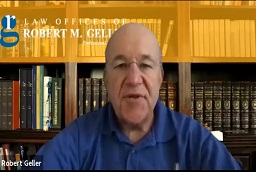Many experts find it challenging to include their clients in the setup and management of their PPC campaigns because of the complexity of the subject matter and the jargon that comes with it. As clients are usually happiest when they are directly involved in the process, it is essential to help them understand this type of advertising. Read on to find out how PPC experts are teaching their clients the vocabulary and skills needed to become more involved in their own success.

Rachel Wilson
Table of Contents
Five KW’s top tips
Sometimes your client wants to be really involved in the PPC strategy you’re delivering for their company. Here are KW’s top tips to help you ease your client into the world of PPC.
Tip One – Work with your client to set campaign KPIs
If your clients are looking to get involved, it’s important to bring them on board right from the start. Ensure that you set clear and realistic KPIs alongside your client. This will help them to understand the realities of the PPC world whilst educating them on successes and improvement areas within PPC.
Tip Two – Keep your client involved
Now that your client is on board from the beginning, it’s important to maintain a clear communication channel with them throughout the campaign. Reacting quickly to findings and changes is critical in paid advertising. Without regularly scheduled meetings, your clients could be missing out on excellent learning opportunities. So, make sure you schedule regular PPC update meetings into your client’s calendar.
Tip Three – Speak their language
When we talk about PPC, we tend to use a lot of technical jargon. This can be intimidating and overwhelming for your client. Avoid using abbreviations until you’ve explained what they mean. Ensure you include details rather than breezing over explanations. Take the time to explain the methodology behind each term and why you’re implementing that term. Remember that you’re the experts, not them!
Tip Four – Don’t forget the user journey
Take the time to walk your client through the user journey. This will help them understand the PPC strategy, as well as grant them a deeper understanding of their audiences, which they can use to inform other areas of their business. Share your analysis of their campaign’s user journey, allowing them to understand what behaviour leads to conversions and where improvements can be made to increase their conversion rate.
Tip Five – Create detailed reports
When you’re creating reports, don’t assume that the client will infer all of the correct information. Take the time to break down the findings for each campaign in a clear and structured way that is relevant to your client’s KPIs. By doing this, you share the value of the campaigns with your client and show them how PPC is contributing to the overall success of their business. Remember that your report should be part of a conversation that provides your client with answers that will inform further strategic decisions.
Report and discuss
1. The best way I’ve found is to break it down into smaller content pieces. I do this by focusing on, say, one metric a month – aligned to the monthly reporting. One month might be CTR and optimization, another Quality Score. Clients like this as they feel they are learning something new each time we catch up. We can analyze their report to discuss the metrics.

Need Google Ads Management Help?
Free Google Ads account review for
qualified clients
Almost 20 years experience
2. Prepare training/demonstration videos using their PPC accounts. When I feel something is a little more complex, I prepare a “pre-meeting video” that walks them through the complex data very simply. Usually, it takes a few goes to get it right, but it is worth it!
3. Prepare infographics that walk them through or are visually engaging. For the [topics] that come up again and again, we have a series of infographics that are sent along with reports. This might be as basic as how to add payment details to the PPC accounts and add a partner to Facebook, or more complex for understanding quality score. We rarely send these without a meeting to explain them, but it’s a good reusable guide that clients love.

Paula Glynn

Ryan Scollon
Discuss the fundamentals
Educating clients in PPC is vital if you want them to appreciate the value in the work that you are doing. As it’s very complex, they need to have a desire to be educated. Some clients just want to know the fundamentals. Others want to get their hands dirty. Here are a few different things that I do:
The first thing I do is send all clients a pdf that answers the most common questions, such as ‘Why is my ad not showing?’ This is a great resource for them to have and refer back to from time to time. I also try to explain my reasoning behind every change or suggestion that is made so that they understand the logic behind it. So, instead of saying ‘I increased the bids for these keywords,’ try adding ‘as this will help your ad show higher up the page, and therefore get more clicks and visibility.’
For clients that want to learn even more, I usually offer ad hoc training or direct them to other training courses or resources around the web. There are plenty of free beginner guides, and Udemy has a range of video courses to choose from.
Introduce the basic
Given the breadth and depth of PPC advertising, it can be awkward for a client to learn its ins and outs. While mastering the entire realm of PPC advertising may seem like a daunting task, there are small steps clients can take to at least better understand the work their ad agencies are doing.
A relatively easy, and very important, step clients should take to better understand PPC advertising is to learn the metrics used to measure a campaign’s effectiveness. Knowing what basic markers of success like ‘click-through-rate,’ ‘conversion rate,’ and ‘return on ad spend’ mean is vital. If a client really wants to analyze the success of their campaigns, they should be able to ask questions of their PPC account managers based on more advanced metrics and data.
For example, metrics like search impression share, overlap rate, and quality score are all metrics PPC managers analyze that are not often examined by clients. Learning new metrics doesn’t have to be like studying for the SAT. Instead, clients can learn one new metric every day while having their morning coffee. Or, they could set aside an hour once a week to learn five to ten new metrics (a “Metric Monday,” as we like to say!). You can always offer to lead learning sessions with your clients, which can increase their trust and help them better understand big wins in your recent PPC campaigns.
Regardless of how they do it, clients will have an easier time with PPC advertising if they better understand the data behind the decisions being made to their campaigns.

Jack Landess

Kaspars Brencans
Speak to a client in business terms
The [first piece of] advice I give my peers when it comes to educating our clients is to make sure you speak to a client in business terms rather than technical terms.
99% of the time a client hires an agency, it is because they lack expertise in PPC marketing, and they don’t want to invest any time in learning it.
Therefore, I would suggest talking to the client in terms of their monetary investment and their return on ad spend. Setting common KPIs (Key Performance Indicators) that match their business needs (e.g., approximate cost per lead, expected amount of leads, etc.) will minimize the amount of time spent on video calls talking about CPCs, CPMs, placements, bid adjustments, and bidding strategies. Get to the point and talk nitty-gritty!
Teach, Don’t Tell
Gaps in understanding are one of the most common points of contention in a professional relationship. Your client may have hired you because they trust your PPC expertise, but that doesn’t mean they should be left out of the loop regarding the reasoning behind the decisions you’re making on their account. Rather than simply telling your client about their PPC campaign, take a more hands-on approach. Teach them: What your strategy is, why you’re prioritizing certain KPIs, how your efforts will benefit their goals as a company, and so on. This will help to open your lines of communication, instill a sense of trust in your team, and lay the groundwork for a positive collaborative relationship.

Adam Binder
Patrick Connelly
Discuss the short and long-term goals
When dealing with clients, the subject of PPC can be a tough topic to navigate. I think the biggest challenge I’ve seen clients struggle to overcome is the fear of spending money combined with the belief that PPC is too costly.
The truth is, PPC is only too costly if you do not participate while your competitors do, resulting in them gaining market share while you lose it. While most forms of PPC become more expensive over time, it’s still possible to achieve a great ROI by implementing a sound strategy, creating killer ads, and knowing your products and competitive landscape. It’s helpful to explain to clients that the goal of PPC should be much more than generating a single profitable sale.
The ultimate goal of PPC needs to be customer acquisition and retention to realize the customers’ lifetime value. PPC is merely a tool to introduce the customer to your product and/or brand. It’s part of a much larger process, in which, ideally, you will be able to generate additional, continued sales from that same customer over a long period of time. Once the client understands this [principle], it’s helpful to discuss with them short and long-term goals and establish KPIs so they can visualize the results that are being generated.
This is a crowdsourced article. Contributors are not necessarily affiliated with this website and their statements do not necessarily reflect the opinion of this website, other people, businesses, or other contributors.



















